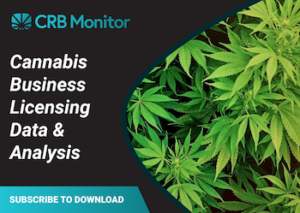Three years after Oregon voters passed the first public referendum in the U.S. to allow for the personal use of psychedelic mushrooms, regulatory programs in Oregon and Colorado are just getting off the ground. California could be the next state to legalize personal possession and use of several psychedelic compounds with bill SB 58 that currently awaits the governor’s signature. Legalization bills are pending in a few other states, while initiative voters in Massachusetts may get a direct say in 2024.
Meanwhile, a number of communities ranging from Seattle to the District of Columbia have decriminalized or reduced penalties for possession of psychedelic mushrooms, or made it a lower enforcement priority. Washington and New Jersey have reduced penalties, while New Mexico and New Hampshire have adopted limited exemptions for possession and use of the substances.
Nevada and Arizona this year join Texas, Maryland, Connecticut in passing legislation to study liberalization of laws regarding psychedelic use. And although a bill to establish a psilocybin working group in Hawaii died, Gov. Josh Green, an M.D., put together his own Breakthrough Therapies Task Force.
Oregon service centers up and running
Oregon voters approved the Oregon Psilocybin Act (Measure 109) in 2020, making it the first state to create a basic framework for providing services to people 21 and older. A separate ballot measure passed that year (Measure 110) decriminalized possession of small amounts of controlled substances. This year, the state legislature followed up by passing SB 303, which requires program data reports. Gov. Tina Kotek signed it June 6.
Oregon Psilocybin Services (OPS), within the Oregon Health Authority, began accepting business applications in January for four license types:
- Service centers, which can sell and dispense mushrooms
- Facilitators, who counsel clients but cannot administer or sell mushrooms
- Testing labs
- Manufacturers
The OPS also authorizes worker permits.
By May 5, it issued its first operating center license to EPIC Healing Eugene, which started serving clients that month. It had also issued three manufacturer licenses, one laboratory license to Rose City Laboratories, five facilitator licenses and 84 worker permits by that date.
The OPS posts weekly reports on license applications and permits. As of Sept. 18, 730 license and worker permit applications have been submitted. They have approved four manufacturer licenses, 11 service center licenses, two laboratory licenses, 110 facilitator licenses and 281 worker permits.
The program is not modeled after the state’s cannabis program. Clients 21 and older must complete a session with a licensed facilitator before consuming psychedelic substances at a licensed service center. Service centers are allowed to sell the drug, but facilitators are prohibited from administering it to clients. Clients must take the drug themselves. No prescription is required.
The Oregon Psilocybin Advisory Board, created by the act, establishes application licensing fees. It has 14-16 members appointed by the governor.
The act specifically prohibits the release of most licensee information (ORS 475A.586) including:
- Personally identifiable information, except for the name of the direct owner
- The address of a premises for which a license has been issued or applied
- Information related to the security plan or the operational plan for a premises
- Information related to any record that the OHA determines contains proprietary information of a licensee
However, approved business licensees and facilitators can elect to release their contact information. The state provides those lists online:
Also noteworthy about the Oregon psilocybin program:
- The program is state funded for two years and then is expected to be sustained from licensing fees. It received $3.1 million from the general fund for the 2023-2025 biennium.
- Licensed providers collect a 15% retail sales tax that is remitted to the state Department of Revenue.
- Beginning January 2025, SB 303 requires service centers to collect and make public quarterly aggregated data regarding services. The OHA shall collect and make public licensing and diversity data annually.
Colorado still in rulemaking process
Colorado’s Proposition 122, Access to Natural Psychedelic Substances, was approved by voters in 2022. Now known as Article 170, it removes criminal penalties for users 21 and older, allows for personal cultivation with no possession limits, and provides for regulated access. The state legislature this year passed SB 23-290, which replaces Prop. 122, according to a Department of Revenue (DOR) spokesperson. It establishes a regulatory framework and agency responsibilities and repealed some of the deadlines that were in the original referendum. It was signed by Gov. Jared Polis on May 23.
The business licensing authority is the Natural Medicine Division, under the DOR. The Department of Health and Environment, in coordination with the DOR, sets rules for testing standards, certification requirements and procedures. The Division of Professions and Occupations, under the Department of Regulatory Agencies (DORA), licenses facilitators who guide clients through their trip.
A 15-member Natural Medicine Advisory Board, facilitated by the DORA, was appointed by the governor in January to make recommendations to the NMD.
There are currently four natural medicine business license types:
- Healing centers
- Cultivation
- Product manufacturer
- Testing facility
Other license types may be introduced if determined necessary by the NMD. There are also occupational licenses or registrations for owners, managers, employees and contractors involved in licensed psychedelic activities.
NMD is currently going through a rulemaking process with a goal of making rules effective by Oct. 1, 2024. DORA has its own timeline.
Key dates:
- June 30, 2024 — Annually publish a publicly available report concerning the implementation and administration of the program. The report must use relevant data, as determined by the director and the state licensing authority, and must not include any information that could disclose the identity of a participant.
- By Oct. 1, 2024 — NMD to adopt its rules.
- No later than Dec. 31, 2024 — DORA to adopt rules to establish qualifications, education, and training requirements for facilitators; approve required training programs; and begin reviewing facilitator applications. The division shall prioritize reviewing applications from applicants who have established residency in Colorado.
- No later than Dec. 31, 2024 — The NMD is to grant or refuse state licenses for cultivation, manufacturing, testing, storage, distribution, transport, transfer and dispensation of natural medicine.
- Until June 1, 2026 — “Natural medicine” only includes psilocybin and psilocin.
- After June 1, 2026 — If recommended by the Natural Medicine Advisory Board, the NMD may add dimethyltryptamine (DMT), ibogaine, and mescaline (excluding lophophora williamsii (peyote).
- September 30, 2032 — Article 170 is repealed. Before the repeal, article 170 is scheduled for review.
Other details of Colorado’s natural medicine laws:
- Allows state-chartered banks and credit unions to lend to businesses.
- Prohibits an individual from having a financial interest in more than five healing centers.
- Localities may regulate time, place and manner of operation of healing centers but cannot ban them or prohibit transportation.
- For the first two years, the program will be supported by the general fund and then should be self-funding from fees.
- Allows for 280E deductions on state income taxes.
- Confidential information includes almost everything about a licensee and its application including leases, business organization records, sales info, financial records, tax returns, cultivation info, testing results, security plans, investigative records and more.
California bill legalizes possession, studies therapeutics
SB 58, which is sitting on Gov. Gavin Newsom’s desk, would decriminalize the possession and cultivation of small amounts of certain psychedelics on Jan. 1, 2025.
In the meantime, the bill would also require the California Health and Human Services Agency to convene a workgroup to study and make recommendations for a framework for a therapeutic program, including facilitated or supported use of those substances. The workgroup is to deliver a report to the state legislature by Jan. 1, 2025.
SB 58 would allow a person 21 and older to possess one gram of psilocybin or psilocin, or one ounce of plant or fungi containing those hallucinogens; one gram of DMT, and four grams of mescaline.
Introduced by Democratic Sen. Scott Wiener, SB 58 cleared the legislature on Sept. 7. Newsom has not indicated whether he will sign or veto the legislation, but he has until Oct. 14 to make a decision.
What will next year hold?
Meanwhile, Maine, Massachusetts and New York have legalization bills still in play, and North Carolina has a bill that would authorize research, but none of the legislation has had traction in months. The Massachusetts attorney general has also approved two psychedelics legalization voter petitions to be circulated for the 2024 ballot.
Many other states had pending legislation to legalize or study therapeutic hallucinogens this year that fell by the wayside, including Montana, New Mexico, West Virginia and Connecticut. Until the next legislative season starts, it will be up to local communities to decide whether to reduce penalties for possessing and using Schedule 1 hallucinogens.













